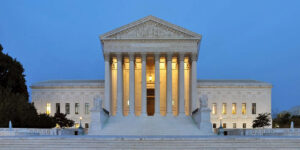Does Faith Result In Kindness?
A study from the University of California-Merced found that people perceive those who carry out “good deeds” to be religious or hold some belief in God.
According to the study, there is a “psychological bias linking kindness and helpfulness with faith.”
The research focused on two nations: the United States, where 47% of people describe themselves as religious, and New Zealand, where 49% of people do not hold to any religious belief.
Participants were given descriptions of actions carried out by a man and asked to decide whether his actions suggested he believed in God, did not believe in God, or were solely associated with his occupation. In the case of the prompt, the man was a teacher.
The man “took a path of increasing benevolence,” according to the study’s news release, “from helping stray animals as a child to, as an adult, giving food and clothes to homeless people. Sometimes, during bitingly cold weather, he offered a spare room to homeless families.”
Breaking News. Spirit-Filled Stories. Subscribe to Charisma on YouTube now!
Participants were then asked which option was more likely: “The man is a teacher or the man is a teacher and believes in God.”
Other participants were asked to choose whether “the man is a teacher” or “the man is a teacher and does not believe in God.”
The study concluded that there is widespread thought that believing in God or having another religious belief is connected to “socially uplifting behavior.”
“Our evidence indicates that people stereotype believers as more likely to care about and help others. But this theoretical model suggests that the stereotype might actually have had merit in the past as major religions grew or may possibly be true even now — people who believe in God might actually be more likely to help others,” said Colin Holbrook, co-author of the study. “The evidence that believers are more prosocial is currently mixed, and it’s a question that calls for more research.”
Atheists, however, have been linked with antisocial behaviors, according to research discussed in the study.
“[W]e found evidence that religionists are conceptualized as morally good to a greater extent than are atheists conceptualized as morally bad,” the authors of the study wrote, adding that “even relatively nonreligious participants evinced these biases in both societies, suggesting that the conceptual associations are pervasive.”
Research published earlier this year found that people who actively practice their faith are more hopeful and are less likely to be unhappy in periods of isolation.
The research, focusing on mental health effects of COVID-19 policies, confirmed that “religious people, on average, have better mental health than non-religious people.”
“We find that the worsening of mental health associated with Covid-19 was around 60% higher for non-religious individuals compared to individuals with similar characteristics having average levels of religiosity,” the authors added.
This article originally appeared on American Faith, and is reposted with permission.
Join Charisma Magazine Online to follow everything the Holy Spirit is doing around the world!






































